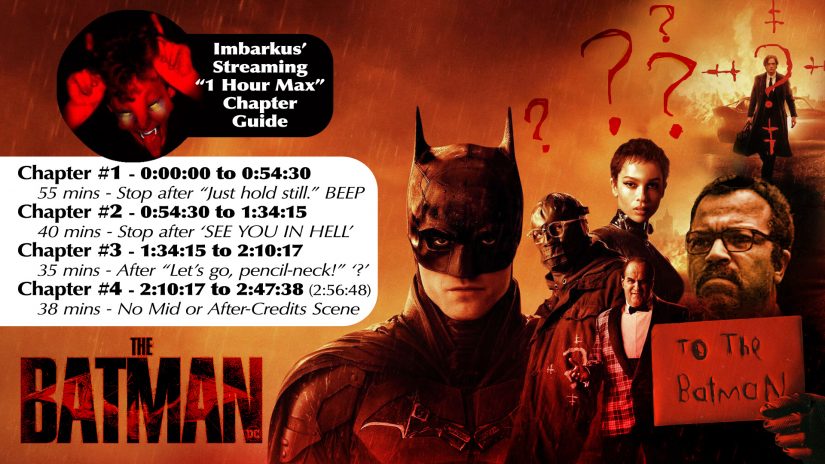Does “The Batman” Earn its Universe Beyond the “DCEU?”
The DC Films Context of “The Batman” with a Spoiler-Free Streaming Review
Three Thumb-Drives out of Four – A Grim, Gorgeous Epic that Renews Yet Regresses The Batman
Grim. Dark. Brooding. Rain-drenched. Shadowed. Contemplative. Languid. Serious. Intense. Grimy. Uncomfortable. Sweeping. Epic. Thrilling. Exhausting. Beautiful. Inspirational.
The Batman, released into theaters in March 2022 and onto HBO Max forty-five days later by Warner Bros. Pictures, is all these things. The film—directed by Matt Reeves, and starring Robert Pattinson as Bruce Wayne/Batman, Zoë Kravitz as Selina Kyle/Catwoman, Paul Dano as The Riddler, Jeffrey Wright as Lieutenant James Gordon, John Turturro as Carmine Falcone, Andy Serkis as Alfred Pennyworth, and Colin Farrell as Oswald Cobblepot/The Penguin—is two hours and forty seven minutes before the credits roll. So, The Batman has time to be a lot of things, but despite the length of the film it doesn’t outstay its welcome by much. Nonetheless, it’s not fair that The Batman is as long—and as good—as it is.
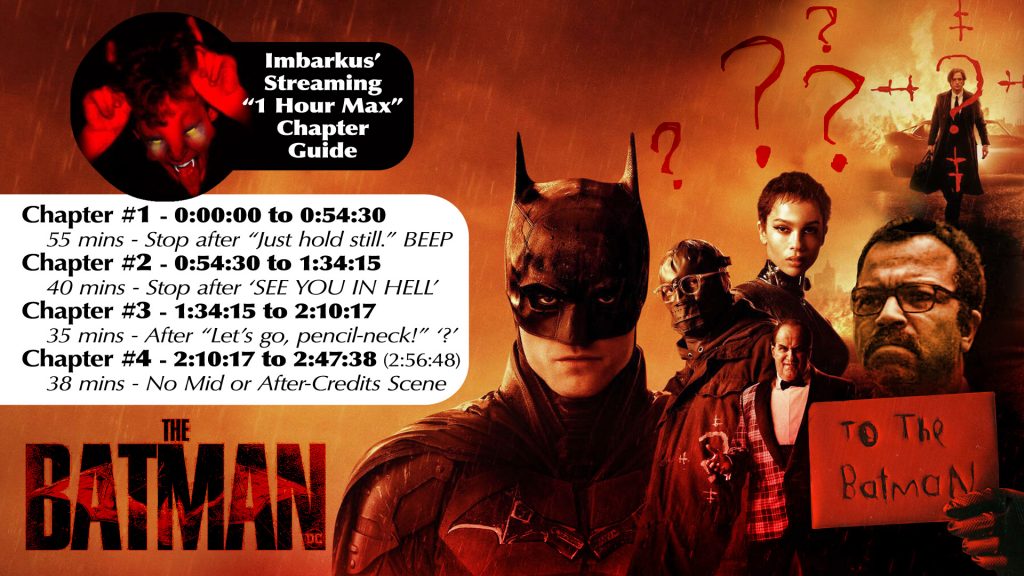
Let me be clear. I’m happy for both director Matt Reeves and star Robert Pattinson that they have found success both critically and commercially with their take on the character and the world of Bruce Wayne and his alter ego. And I’m a fervent believer that a film, even a “comic book movie,” shouldn’t be wedged into a commercially friendly runtime if it takes more time than that for its story to properly flower. And as a fan of the character, I’m overjoyed that this adaptation does indeed present a movie faithful to and worthy of the name of The Batman. I really enjoyed it.
I’ll get into it in just a bit.
Something in the Way
[Melancholy Song Continues]
Some amount of this refinement of approach towards cinematic Batman might be expected at this point by fans. No single comic book character has been rebooted more than Batman; certainly no single comic book character has been recast in cinema more than that of the Caped Crusader. But it is a fan’s mindset that draws these through-lines; in reality each new film production is always a new assemblage of crew hoping for repeat work, a new writer (or set of writers) fevering over a script, a new director’s grand vision, a new back and forth between producer and star to position both for the next several years of… possibilities. And I’m happy to say, at the end of The Batman, I’m more than willing to give this series of movies my patronage as they explore those possibilities.
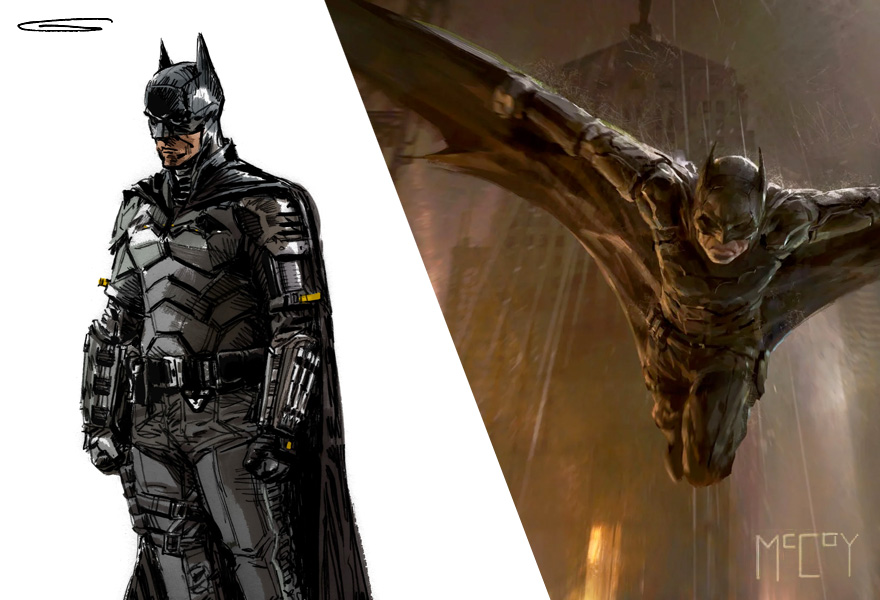
For me, there are three main reasons why it’s troublesome that The Batman is such a success in all its dark, gritty, three-hour glory:
First, my wife was out. Straight up, not interested. She’s just not as into the Dark park of the Dark Knight as I am… and with only passing interest in the trailer, the news that the movie was coming in at just under three hours long was the nail in the coffin for her. She indulges my tastes quite a bit, so I understood and didn’t ask again. Nonetheless, I enjoy every movie more if it adds enough of a broad appeal for my partner to want to see it with me.
Second, for very-activated fans of the most recent DC adaptations into film, the run-time afforded this movie by the studio to tell its story is surprising. The 2016 release of Batman V Superman: Dawn of Justice and the 2017 theatrical release of Justice League, both directed by Zack Snyder, were savaged by studio mandates to cut down the run-times of those films, the latter so much so it makes its own epic behind-the-scenes story of injustice. Of course, the reason for this disparity becomes clearer when you consider the implications of that sequence of events… and how few professional members of the Director’s Guild of America liked the impression that WB might use your family tragedy as an opportunity to re-shoot 70% of your movie, cut it into something you’d hate, and release it with your name still across the marquee.
I presume it’s an effort to protect and ensure their ability to draw top directing talent after that public fiasco that explains why every DC/WB director now gets to name their run-time—plus enjoy a spinoff streaming series with whichever baddie in the film shows the most charisma. The Batman director is already developing a streaming series with Colin Farrell’s character of The Penguin just as James Gunn did before him with Peacemaker–first an antagonist from The Suicide Squad, now an eponymous series title.
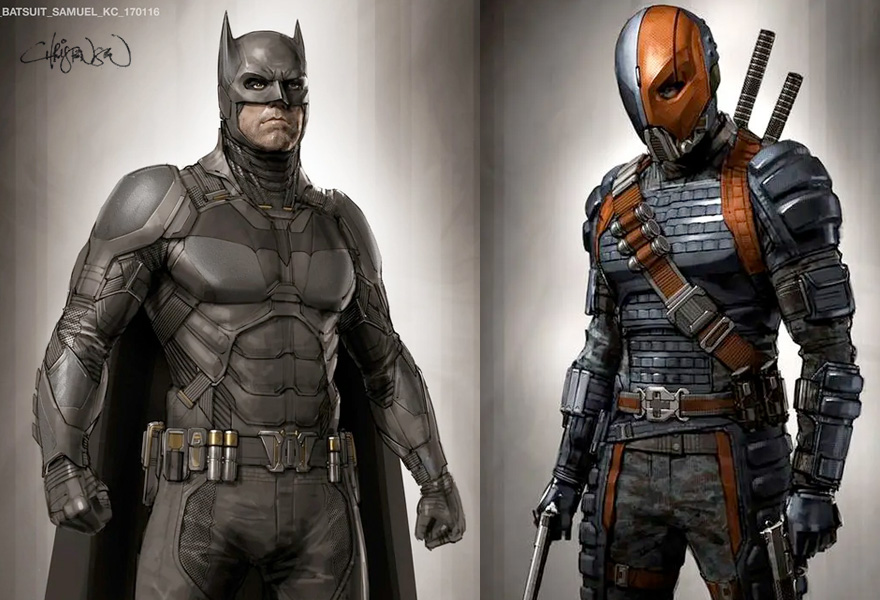
Finally, and related to the point above, riding the bucking bronco of these latest DC movies is tough. It’s tiring to weather the ups and downs of what to expect from them, what is expected from them, and whether or not to invest any more attention and concern in them than you would a one-off experience when the studio itself seems unclear on any extended cinematic universe steps in the Age of the MCU Storyline. And since the redevelopment of The Batman from a vehicle for Ben Affleck’s universe-integrated version of the character into a Matt Reeves production for Robert Pattinson’s younger Bruce Wayne portrayal, the studio has been very clear that this movie is not connected to any other “DC Extended Universe” movies before it. In fact, it wouldn’t be until the streaming-only release of Zack Snyder’s Justice League in 2021 that audiences would learn that the plot of Affleck’s The Batman was previously teased and established when that movie’s Lex Luthor revealed Batmans’ secret identity to his enemy Deathstroke at the conclusion of that film. Rumors of the now-cancelled Ben Affleck version of the film teased the villain running The Batman through a gauntlet reminiscent of the 90’s comic arc “Knightfall.”
Unfortunately, for some fans and on some level, no matter how successful these auteur-driven films are in their individual aims and achievements, they inescapably arrive as the WB alternative to the Marvel Cinematic Universe: DCEU now stands for the Dis-Connected Extended Universe.
So… like the “Knightmare” scene from Batman V Superman, this now-defunct tease is revealed to be another dropped plot thread in an abandoned set of connected story-lines. As these pile up, it’s harder for DC cinematic fans to trust in any new direction, since the “DCEU” franchise as a whole has thus far moved erratically in fits and starts, with little serial cohesion.
All Apologies
Nevermind
With recent news, this is true again. Since Warner Bros.’ merger with Discovery, new overseeing CEO David Zaslov has cancelled a number of announced DC streaming projects, including the highly publicized shelving of the $90 million production of Batgirl. This production starred Leslie Grace as Barbara Gordon/Batgirl, Brendan Fraser as Gotham City villain Firefly, J.K. Simmons reprising his Justice League role of Gotham Police Commissioner James Gordon, and Michael Keaton returning to his original role as 1989 Bruce Wayne/Batman… a development that was to be explained in The Flash, as summarized here by Screenrant:
Michael Keaton was set to appear as his incarnation of Batman in Batgirl, with the movie being developed and set for a release sometime after The Flash. That movie also includes both the Ben Affleck and Michael Keaton Batmen as part of the Multiverse mechanics at work in The Flash. However, news relating to Affleck’s Batman does not stop there.
Jason Momoa also broke the surprising news via Instagram that Ben Affleck’s Bruce Wayne will return in Aquaman and the Lost Kingdom, with this latest confirmed appearance also expanding Affleck’s Batman record to five movies. When it comes to the Dark Knight as an individual character in the DC roster, Affleck’s Batman presently exists alongside both Michael Keaton and Robert Pattinson’s versions in the DC Multiverse.
screenrant.com – “Where Does Batgirl’s Cancellation Leave Ben Affleck’s Batman?”, Aug. 3, 2022
The Flash was originally scheduled for 2022, but has been pushed back a solid year… which is what necessitated the replacement of the Keaton version of the Batman character with the Affleck version in the Aquaman sequel. Yet The Flash continues to experience existential threats to its pre-release PR. It’s star Ezra Miller, also reprising their role from Justice League, continues to make headlines for all the wrong reasons including two arrests in Hawaii, and an arrest for felony theft in Vermont. Miller has also had accusations reported of their “online grooming” of an under-aged indigenous activist leveled by their parents and reported by Complex, which are disputed by the now-adult Takota Iron Eyes themselves as reported by BusinessInsider. Miller also faces accusations reported by Rolling Stone that they are harboring a 26-year-old mother and her three children in an “unsafe environment” (reportedly complete with openly displayed firearms) in their home… accusations leveled by the family’s estranged father and ex-husband, whom the aforementioned woman claims to be “violent and abusive” while praising Miller’s home as a “healing haven” for her and her children. Additional claims have been made against Miller for their public conduct, and companions interviewed for a recent (and aggressively paywalled) investigative story into the controversy by BusinessInsider have expressed concern for Miller’s mental well-being.
So despite Zaslav’s public comments on focusing DC content into larger theatrical tent-pole films—which was his stated reason for shelving Batgirl and taking the production loss of the fully-shot movie as a tax write-off—his pointed silence on the future of The Flash combined with a possible ticking time-bomb of a star playing the title character truthfully means that literally anything could happen to this also fully-shot $200 million dollar plus production, upon which the previously-planned pivot of the entire “DCEU” post Justice League is now precariously perched.
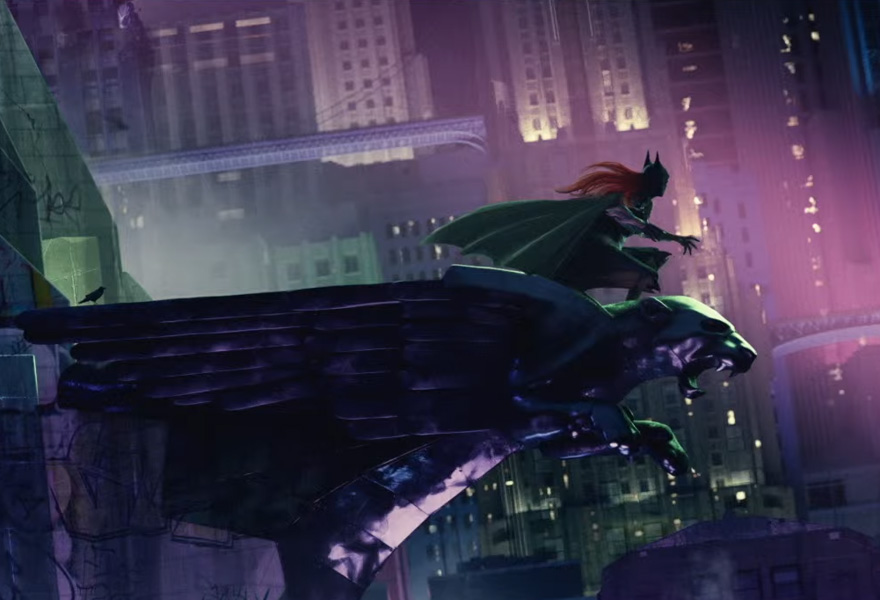
So far, the silence on the subject is proving deafening, as industry icons like Kevin Smith point out the awful optics of cancelling a fully-filmed HBO Max exclusive production starring a woman of color while proceeding with plans to release The Flash theatrically next year despite the most damning accusation regarding Miller—namely that regardless of the opinion of now-adult Takota Iron Eyes, the implication that Miller has been corresponding with them online and helping to form and influence that opinion since they were twelve years old (according to their parents) is supremely creepy.
If The Flash falls apart in the end, by being shelved or transformed via re-shoots removing Miller into something far different than the nearly-fully-spoiled film that it is currently “in the can,” then the long-ago-revealed reappearance of Michael Keaton reprising his decades-old version of the character of Bruce Wayne/Batman is not even guaranteed. Thus, the most recast super-hero role in Hollywood might be occupied by a star power actor (who was no doubt well-paid regardless) who appears in the fewest number of movies in a specific continuity as Batman: zero movies. Zero movies released to film audiences, out of three movie appearances filmed. As Batman. Amazing.
Again, the real slam-bang script here is all this behind-the-scenes story. It’s become the real epic at this point.
Come As You Are
In Utero
So, in the midst of all the drama of the “DCEU”—an acronym I continue to use in quotes after learning it was coined on accident by a journalist on Twitter—the first thing you have to do when considering results with The Batman is give credit to Matt Reeves for his choices divorcing his production and the world of Batman he and his cast and crew labored to create from the larger story-line work and context available (for a time, such as it was) over at DC Films. It’s now clear that such ever-shifting, sandy foundations would have presented the near-certainty of re-shoots and schedule shuffling for this film to overcome, if not further challenges.
After Ben Affleck’s departure from the project, the crowd of #RestoretheSnyderVerse supporters remain vociferous on social media if not always eloquent, and numerous despite their recently reported fleet of retweet bots which I myself have observed in action as I have observed retweet bots for dozens of other online campaigns. Bot or not, they have been consistently loud and insistent in their displeasure over this divorce using the #MaketheBatfleckMovie hashtag. Subsequently, Reeves’ decision to isolate this interpretation faced inordinate… skepticism.
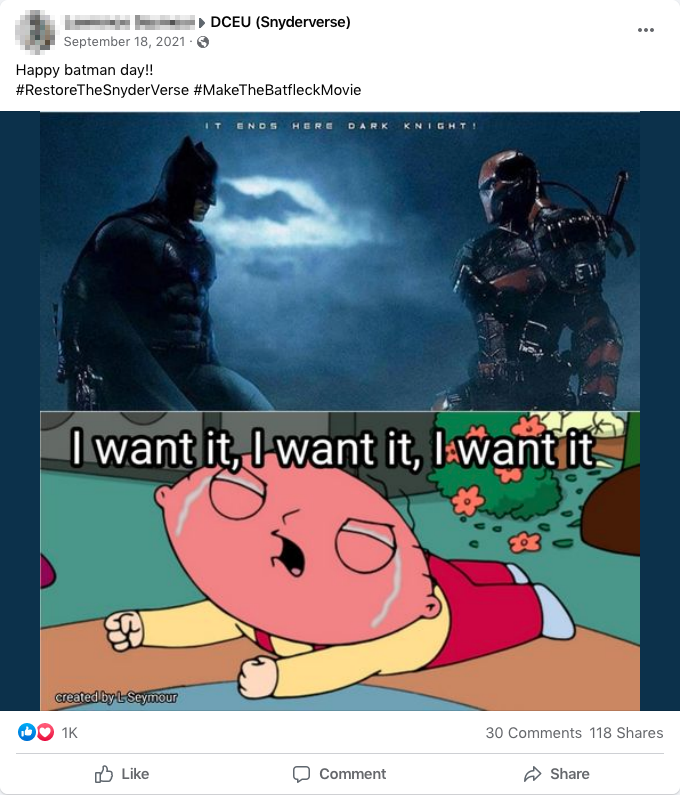
Nonetheless, The Batman has proven to be a success with audiences in cinemas in a way James’ Gunn’s The Suicide Squad, still ostensibly set in the “DCEU,” struggled to achieve in the COVID-soaked summer of 2021 when WB was still releasing films day-and-date on HBO Max (a decision that has been attributed to CEO David Killar since the last time I referenced it and placed it at the feet of studio Chairman of Warner Bros. Picture Group Toby Emmerich). Total worldwide box office for The Batman has surpassed $767 million dollars. Warner Bros. would then release the film on HBO Max forty-five days after theatrical release, which is the WB Pictures 2022 strategy for staggering the release windows. Whether this technique still leaves money on the table in long theatrical tail remains to be seen, though new CEO David Zaslov’s statements regarding the future of DC Films productions indicate a focus on big box-office event films paired with a de-emphasis on HBO Max, throwing the 45-day window into question for 2023 onward.
The knock-on effect of Reeves’ choice to isolate his universe for The Batman is this: cinema fans feel they can safely get on board with this interpretation of The Batman, without the worries that this venture and its associated story-line and exploration of the characters will be suddenly canceled, or re-engineered into a sudden corporate course correction. Warner Bros. has already announced an in-the-works sequel as well as the already mentioned HBO Max Penguin series, and the studio announced intentions to build out this isolated universe with even more HBO Max streaming content. Even if the new management acts to avert these HBO Max productions, as rumors swirl around every currently-announced DC property, the announced intentions so far combined with box office results seem to ensure that—in cinemas—Robert Pattinson and Matt Reeves will be able to ensure their interpretation will not dead-end as a one-off, gradually forgotten under the flow of new content.
Yet since its conception, this movie about Batman already arrives as no orphan; it is both a spiritual child of—and a thematic card-flip serving as bookend—for Todd Phillip’s 2019 film Joker. That film, itself both a critical and a billion-dollar-plus commercial success, was the first of the post-Snyder efforts on behalf of Studio Chief Toby Emmerich and (newly appointed head of DC Films) Walter Hamada to redirect WB’s DC output away from a commitment to the effort of a connected universe. It’s success has already secured it a sequel of its own with Todd Phillips returning to direct, starring Joaquin Phillips repring his role as Arthur Fleck/Joker, and co-starring Lady Gaga in a new interpretation of the role of Harley Quinn, in a film that is reporting to be a musical(!) titled Joker: Folie à Deux. As I mentioned before, these productions are really two different crews and directors and casts—troupes, if you will—working separately. But although there’s no explicit connecting plot threads or reason to believe these two series of films are set in the same Gotham City, so far they compliment each other, they dance around each other. Joker; an aggrieved descent from fear and helplessness into darkness and delusion: The Batman; a mournful ascent from self-righteousness and vengeance to healing and heroism.
There are strong merits to this approach. If super-hero stories are our modern myths, with the mythic power bestowed by the favor of the gods now replaced by overt day-glo mysticism and over-the-top science fiction, then surely they can sustain various tales and interpretations in the mythic sense. As in the case of the Elseworld run of DC comics, various visions of these characters and their themes can stand without the cumbersome artifice of an explicit “multiverse” construct to the extent that each movie’s universe receive some arbitrary numeral forcing them into the same “reality.” Hamada himself has already referenced this framework for the approach by name when considering DC solo efforts after the success of Joker.
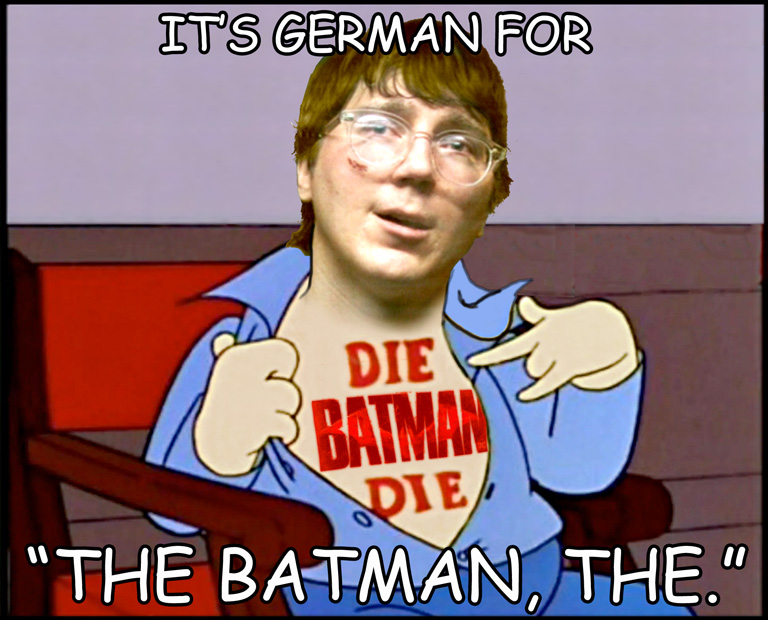
As we see Marvel studios and franchise-runner Kevin Feige continuing to wisely resolve conflicts with and remove directors early in process, I still question how compatible the longer term serialized approach to their cinematic content will continue to be at drawing top level directing talent, crossing over as it has been with their Disney+ Marvel offerings. Marvel’s approach has recently drawn criticism for tying plot threads across streaming series and theatrical releases and for a certain uniformity of tone and color due to their standardized production pipeline and color grading. On the other hand, it’s hard to argue with successes like $1.8 billion in worldwide box office for 2021’s Spider-Man: No Way Home and $953 million for 2022’s Doctor Strange in the Multiverse of Madness to recommend the Marvel connected universe and story-line approach.
Much less, you know, all those Avengers billions.
For some fans and on some level, no matter how successful these auteur-driven DC Films are in their individual aims and achievements, they inescapably arrive as the WB alternative to the Marvel Cinematic Universe: DCEU now stands for the Dis-Connected Extended Universe.
Marvel Studios’ MCU has achieved new heights in cinematic box office and story-telling both by exploring the possibilities of a long-term serialized story-line spread meticulously across multiple films, building to over-the-top cumulative events. Warner Bros. has, ever since the initial pivot via re-shoots for 2017’s Justice League, been consistent in conveying the impression that it simply cannot organize its various production troupes in such a way as to present a connected, competing offering. And as for DC content currently available to enjoy, this remains true, despite Zaslav’s announced intentions to develop a ten-year plan for DC cinematic properties and to find a “franchise runner” for the effort. That will be then; this is now.
At present, instead of Zack Snyder’s initial offering of a connected cinematic universe of DC characters with a darker and more adult tone and subject matter than Marvel’s series, the alternative is now individual comic-book adaptation movies in separate universes connected only loosely and thematically… and, so far, just as dark and adult as the previously Zack Snyder rejected alternative. Except for Wonder Woman 1984, that is. ¯\_(ツ)_/¯
For the world of Matt Reeves’ The Batman, however, dark and adult is as perfect a fit as The Dark Knight’s best cinematic mask and cowl.
Advertisement

